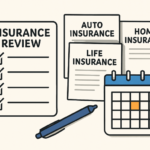Immediate Steps to Take After an Accident
The moments following an accident are often filled with confusion and stress. Your immediate priority should always be the safety and well-being of everyone involved. After ensuring that medical attention is sought for anyone injured, it’s essential to begin taking steps to establish the foundation of a potential legal claim. Documenting the accident scene, gathering details from other parties, and filing a police report can be pivotal. If you’re in the Albuquerque area, contacting an Albuquerque personal injury lawyer at this stage can provide valuable guidance right from the beginning.
Comprehensive documentation includes taking photos of the vehicles, the accident scene, road conditions, and any visible injuries. Exchanging contact and insurance information with the other parties is essential, as is ensuring you get a copy of the police report once it is filed. Swift action in these early moments can solidify your position and help your attorney later prove liability and damages sustained.
- Document the Scene: Photos and video of damages and injuries are crucial.
- Gather Information: Obtain the names, phone numbers, addresses, and insurance details of all parties involved.
- Report the Incident: Official police documentation becomes key evidence if you pursue legal action.
These practices don’t just help protect your interests—they are often required by insurers and frequently referenced throughout any subsequent legal process. Taking control of the evidence early equips you better for all stages of your case.
The Role of a Personal Injury Attorney
The days and weeks after an accident are filled with challenges, including mounting medical bills, calls from insurance adjusters, and uncertainty regarding your ability to work or pay expenses. Having a personal injury attorney by your side during this period can make a meaningful difference. Your attorney’s job is to navigate the legal aftermath—so you can focus on recovering—by taking on the following responsibilities:

- Legal Guidance: Interpreting your rights and advising you on what steps to protect your claim.
- Evidence Collection: Preserving accident records, medical documentation, and any available surveillance footage.
- Negotiation: Handling all insurance negotiations to seek the most favorable settlement.
- Representation: Advocating on your behalf in court if your case progresses to litigation.
By placing your case in the hands of a specialist, you gain a partner with the skills to fend off bullying tactics from insurance companies and anticipate the legal maneuvers of opposing parties. This professional focus allows you to prioritize your medical care and recovery.
Dealing with Insurance Companies
Insurance companies are often focused on safeguarding their bottom line, which means their initial settlement offers may not reflect the actual value of your losses. Your personal injury attorney acts as your buffer, managing all conversations, submitting the necessary paperwork, and ensuring you don’t inadvertently make statements that could jeopardize your claim. By assessing the adequacy of offers and negotiating assertively, attorneys help you avoid undervaluing your claim.
- Managing Communications: Preventing insurance adjusters from extracting statements that may be used against you.
- Assessing Offers: Ensuring each settlement offer aligns with the scope of your injuries and losses.
- Advocating for Fairness: Pushing back against unjust valuations and litigation threats, protecting your interests at every stage.
Without legal representation, it’s easier to be pressured into quick settlements that don’t take into account the extent of your injuries and the uncertainty of your recovery. As detailed by the Nolo legal resource, experienced negotiation often leads to better outcomes for accident victims.
Proving Liability and Gathering Evidence
Establishing fault is at the heart of any personal injury claim. Attorneys work relentlessly to uncover and organize evidence, starting with reviewing police and accident reports and analyzing your medical records. This process is often supplemented by input from accident reconstruction specialists, medical experts, or witnesses whose statements support your account of the events.
- Investigating the Accident: Diligence in collecting official reports, photographs, and physical evidence.
- Consulting Experts: Leveraging scientific analysis or medical evaluation to clarify complex technical issues.
- Interviewing Witnesses: Gathering independent accounts that strengthen your position in negotiations or a trial.
Building a robust case is instrumental not only in convincing an insurer to offer fair compensation but also, if needed, in presenting a strong argument in court. Visit Nolo’s information about mediation in personal injury claims for additional reference on this topic.
Calculating Fair Compensation
Accurately valuing your claim is essential for securing a settlement that truly addresses your losses. Compensation should account for your current and future medical expenses, lost income if your injuries prevent you from working, and non-monetary damages such as pain, suffering, or reduced quality of life. Attorneys consult with medical providers and vocational experts to estimate these costs and support your claim.
- Medical Expenses: Including ongoing rehab, medication, or surgical costs.
- Lost Wages: Wages lost during recovery plus diminished future earning potential.
- Pain and Suffering: Covering emotional trauma, physical discomfort, and lasting impacts on daily living.
Understanding Legal Fees
The prospect of legal fees should not deter you from seeking professional representation after an accident. Most personal injury attorneys offer their services on a contingency fee basis, meaning there are no upfront legal costs for you. Instead, your attorney will take a set percentage from any settlement or court award if your case is successful. This structure enables access to quality legal services for everyone, regardless of their economic circumstances.
- No Upfront Costs: You are only billed if compensation is secured.
- Percentage-Based Fees: Legal fees are deducted as a portion of your financial recovery, typically ranging from 25% to 40%.
Timeliness in Seeking Legal Assistance
Consulting a personal injury attorney immediately after an accident can significantly impact the outcome of your case. There are strict legal deadlines, known as statutes of limitations, which dictate how long you have to file a claim. Additionally, evidence is more readily available, and witnesses’ memories are fresher soon after the event. Acting quickly ensures vital evidence is preserved, timelines are met, and your rights are proactively protected.
- Statute of Limitations: Missing key deadlines can permanently bar your right to compensation.
- Preservation of Evidence: Documents, photos, and surveillance video can be lost or deleted if not promptly secured.
- Witness Recollection: Timely attorney involvement enables accurate and persuasive witness statements.
Conclusion
A personal injury attorney can be your strongest ally after an accident, handling communications with insurers, proving liability, and ensuring that your compensation accurately reflects your losses. Their expertise alleviates the legal burden, allowing you to prioritize your healing process. Seeking professional legal guidance shortly after an accident can make the difference between a fair recovery and a missed opportunity.






